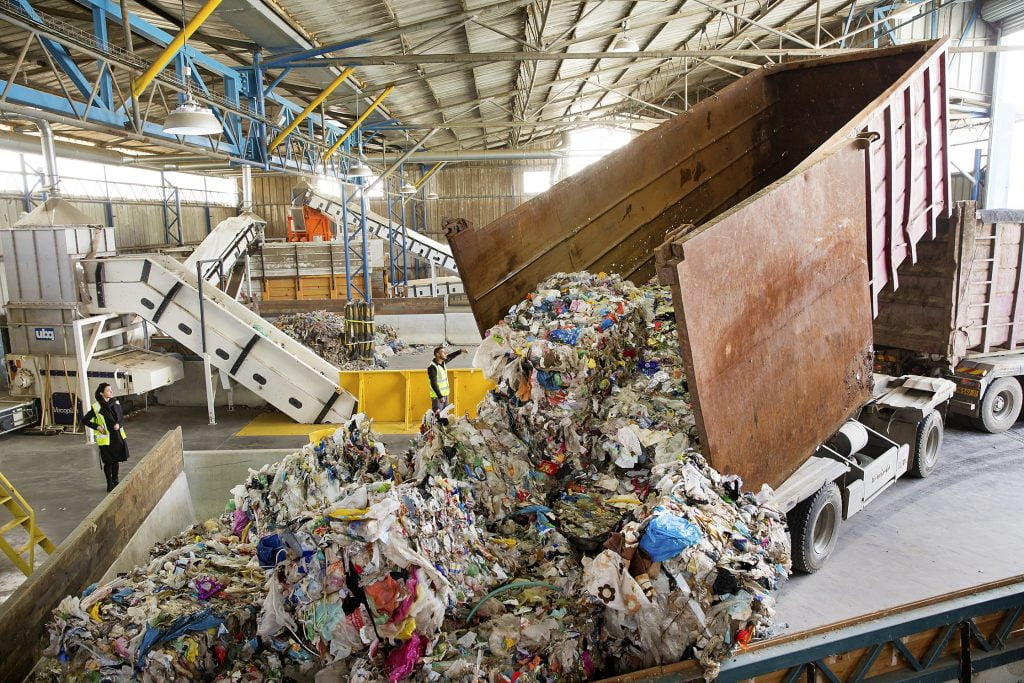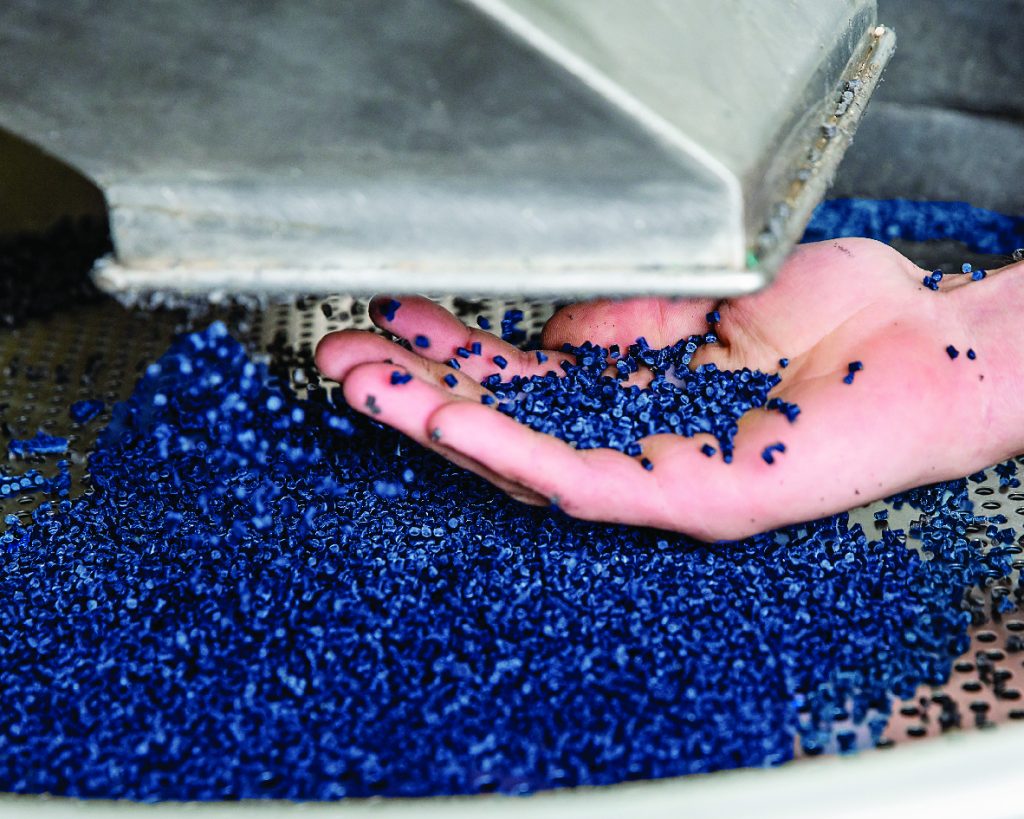This article is a guest post on NoCamels and has been contributed by a third party. NoCamels assumes no responsibility for the content, including facts, visuals, and opinions presented by the author(s).
Jack “Tato” Bigio is a leading environmentalist with over 20 years of experience in international business development and is the co-Founder and CEO of UBQ Materials, which developed the world’s first bio-based material (UBQ™) made entirely of unsorted household waste. The company diverts municipal solid waste from landfills and turns it into a sustainable, fully recyclable substitute for oil-based plastics.
Plastic taxes and bans around the world aim to encourage manufacturers and consumers to adopt more environmentally conscious behavior. Now, the Israeli government has taken a stand with a new initiative to increase the tax on single-use and disposable plasticware, aiming to reduce consumption by up to 40 percent and help better protect the country’s national parks, habitats, and natural resources. This tax is a response to Israel’s astronomical plastic use, with Israelis using an average of 7.5 kilograms of single-use plastics per person each year, five times as much as the European Union.
SEE ALSO: Israel Proposes New Tax To Reduce Single-Use Plastic Consumption
While this legislative proposal is a sign of environmental accountability, it is a far cry from addressing the real problem. We need to recognize the larger challenge, think beyond punishing single-use plastics and focus on systemic change to reach a truly circular economy.
Waste is more than just plastic

Plastic isn’t the enemy. Flexible, durable, convenient, and cheap to produce, the material is integral to our modern world and plays an important role in the manufacturing of everything from cars to medical devices, airplanes, cell phones, and much more. Plastic has become the quintessential environmental scapegoat, carrying the blame for pollution, while only constituting about 12 percent of total waste.
Organic waste like food, paper, and cardboard makes up over 80 percent of total municipal solid waste. When thrown into landfills, this organic waste decomposes without oxygen and releases copious amounts of methane, a greenhouse gas that traps radiation 86 times more efficiently than carbon dioxide.
By hyper-focusing on plastic, we cannot see the forest through the trees. The problem isn’t plastic itself, but rather the growing rate of waste production and the lack of viable end-of-life solutions for waste, including both plastic and organic.
So how can legislators help bring about lasting change and transform our current practices into a sustainable, circular economy?
Sticks and carrots
Deterrent taxes, like the one recently proposed in Israel, are starting points. Yet they leave the impression that plastic pollution can be solved without true systemic solutions. We can’t simply ban or tax unsustainable products without also investing in commercially viable alternatives and implementing a “reward and punishment” legislative style to effect real change.
Sign up for our free weekly newsletter
SubscribeGovernments should both deter unhealthy practices (e.g., by increasing landfill fees or taxing carbon emissions) and financially incentivize pragmatic technological alternatives. Together, sticks and carrots can make an impact.

An example of a “stick” is a newly implemented policy by the EU which mandates that plastic products be made with at least 30 percent recycled content by 2030. That is, if a product has 28 percent recycled content, a penalty will be implemented on the last 2 percent costing double the amount of plastic, encouraging companies to incorporate recycled content into their products.
A “carrot” is the carbon credit system found in New Zealand and elsewhere – a market-oriented approach to sustainability based on creating an objective value for carbon trading. Legislative caps on allowable emissions are established, and organizations can trade any unused carbon allotments in the marketplace. This creates an economic incentive to reduce emissions and a market for solutions that mitigate carbon emissions.
Supporting advanced waste-management alternatives
Developing and incentivizing the implementation of technologically advanced waste-management solutions can have a much larger impact than purely deterring unhealthy practices. Viewing waste itself as a resource and incorporating it into future products turns a linear process into a circular one, lowering carbon emissions of manufacturers and landfills. Taxation can help reduce unnecessary plastic use, but without the addition of economically viable alternatives, it addresses only a small part of the problem.

It is important to involve a product’s entire value chain – legislators, manufacturers, businesses, consumers, and waste management practices – in the push towards environmental consciousness. An example of this is the USDA’s BioPreferred® label, certifying that a material is made of at least 50 percent bio-based content. The label carries with it preferential scoring for governmental tenders, encouraging companies to use bio-alternative materials to replace oil-based resins.
Implementing solutions at home
They say, ‘necessity is the mother of invention’ and nowhere is that truer than here in Israel. Implementation of groundbreaking technologies is often the result of a direct need. We see this in agriculture with drip irrigation, water conservation with proprietary desalinization techniques, and safety with the Iron Dome. However, in other industries, monetization and implementation of homegrown innovation happen only outside of Israel’s borders, as exportation often yields higher economic gains.

In the case of climate change, we cannot afford to be the shoemaker whose son walks barefoot. As a small and agile country, Israel can make systemic changes and become a leader in waste solutions, sustainable materials and clean technologies that support a circular economy.
SEE ALSO: Bye Bye, Trash: Israeli Startup Pilots Breakthrough Waste Conversion Solution In US
It is time to adopt a sense of urgency for the effects of climate change and view the deteriorating state of our natural environment as an immediate threat to our population that requires the same level of widescale paradigm shifts we’ve implemented in agriculture, defense, and other fields.
Related posts

Resilient And Nutritious New Plant-Based Milk Aims To Make A Splash

Chocolate From Cultivated Cocoa Comes Without Environmental Toll

Plastic Fantastic: Startup Takes PVC Back To Its Crude Oil Roots




Facebook comments